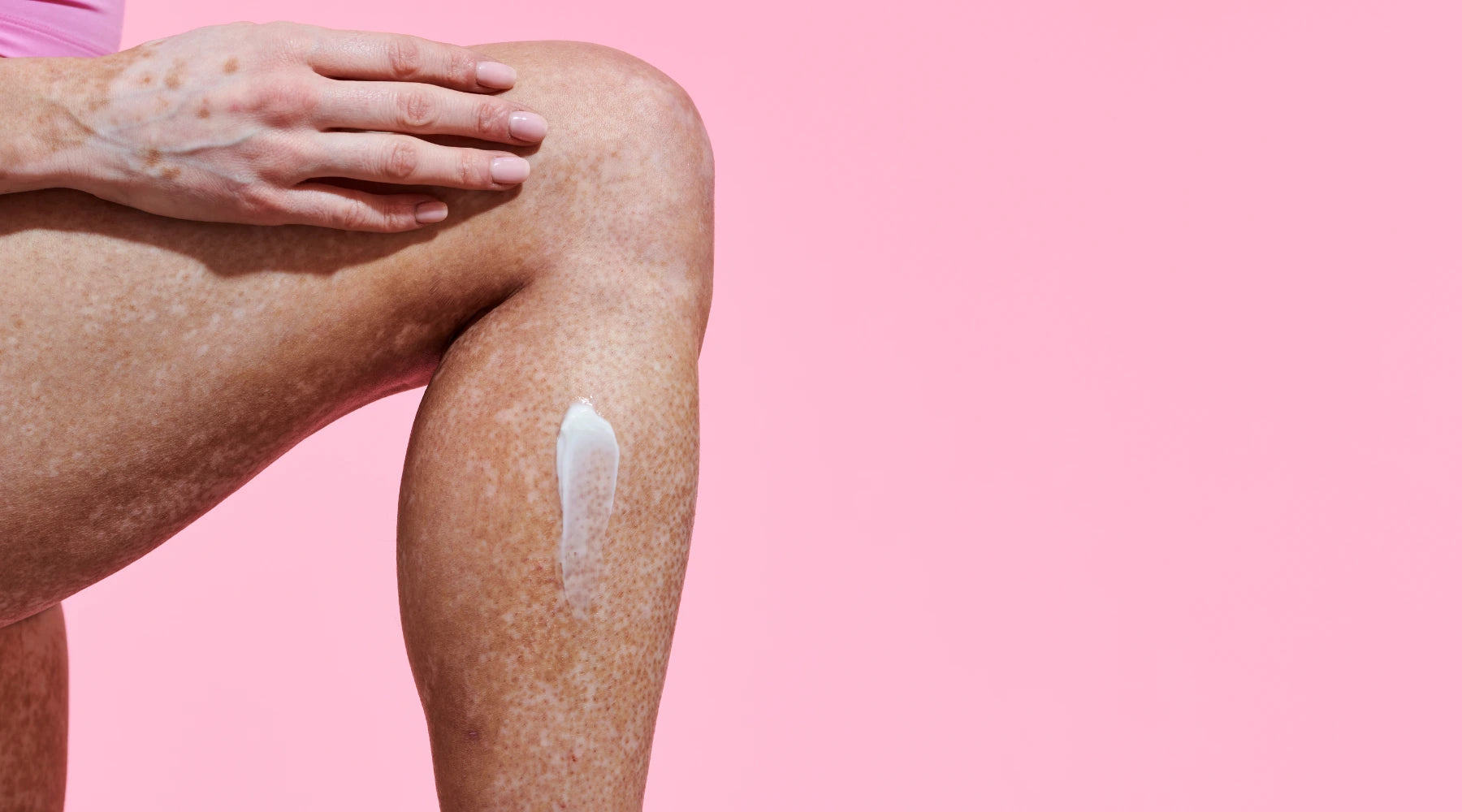Dry Skin vs. Eczema: Understanding the Differences

Dry skin is a common issue, especially during the colder months where the weather conditions can be harsher and our skin is exposed to more external aggressors. However, we know there is often confusion on the difference between having dry skin and experiencing a condition like Eczema. While both conditions involve dryness and discomfort, they are not the same and require different approaches to care.
So, what are the key differences between dry skin vs. Eczema? Keep reading as we discuss causes, symptoms, and how to manage both effectively.
What is Dry Skin?
Dry skin is a skin type, rather than a condition. Dry skin can occur when skin lacks natural oils and moisture. This results in skin which appears flaky, scaley and rough to the touch. In addition, dry skin may also feel tight, become red and you may notice fine lines and skin texture become more prominent. It can affect anyone at any age and is usually the result of genetics. However, dry skin can also be aggravated and made worse by external factors such as environmental changes, lifestyle habits, harsh skincare products and ageing.
Common Causes of Dry Skin:
- Weather: Cold weather, low humidity, or harsh conditions can strip the skin of its natural moisture
- Hot Showers: Taking long, excessively hot showers can disrupt the skin’s protective barrier and lead to moisture loss
- Harsh Soaps or Skincare Products: Using products with strong chemicals can dry out the skin by removing its natural oils
-
Ageing: As we age, our skin becomes more fragile and naturally produces less oil, leading to increased dryness. If you are experiencing dry skin caused by ageing, try the Solution Collagen Body Cream formulated for dry skin in need of a boost of firmness.
Signs of Dry Skin:
- Flaky, rough patches
- Itching (usually mild)
- Tight or stretched feeling
- Mild redness or irritation
- Fine lines or cracks
Dry skin can generally be managed with the right skincare routine and its effects will generally improve with lifestyle changes and proper care. If you are experiencing inflammation and discomfort, however, you may have an underlying skin condition such as Eczema.
What is Eczema?
Eczema is a chronic skin condition that goes beyond just dryness. It is an inflammatory condition that causes the skin to become irritated, inflamed, itchy and even cause blisters, rashes and infections. There are several types of Eczema and it can effect people of all ages. Eczema is often genetic and like dry skin it can be triggered by environmental factors, allergens, hormones, or even stress.
What Causes Eczema?
The exact cause of Eczema is not always clear; however, Eczema generally runs in families. You are more likely to experience Eczema if a family member has the condition, or a history of asthma, allergies or hay fever.
What Can Cause Eczema Flare-Ups?
- Immune System Response: Eczema can be linked to an overactive immune system that triggers inflammation in the skin
- Environmental Triggers: Pollen, mould, and certain fabrics can cause Eczema flare-ups in certain people
- Allergies: Certain foods, soaps, or skincare products can act as allergens and worsen Eczema
- Stress: Emotional stress can worsen symptoms of Eczema, leading to flare-ups
- Hormones: changes to your hormone levels, such as during pregnancy, may exacerbate Eczema
Eczema flare-ups can range from mild to severe, and while the dry, itchy skin may temporarily improve with certain moisturisers, Eczema typically requires more intensive treatment such as prescription creams, medications, and avoiding specific triggers.
Key Differences: Dry Skin vs. Eczema:
- Cause: Dry skin is caused by a lack of moisture and natural oils. It is worsened by external factors such as weather or lifestyle habits. While Eczema is more likely linked to internal factors like genetics and immune system responses.
- Signs and Symptoms: Dry skin is usually characterised by flakiness, mild irritation, and a tight feeling, whereas Eczema is marked by intense itching, redness, and inflammation, often with more severe symptoms like thickened skin.
- Duration: Dry skin usually improves in time with proper care, whereas Eczema is a chronic condition that can have severe flare-ups, requiring ongoing management.
- Severity: While dry skin can be uncomfortable, Eczema is generally more severe, with symptoms that can impact daily life, including sleep disruption from itching.
How to Manage Dry Skin vs. Eczema:
The key to managing dry skin is focusing on restoring moisture and protecting the skin barrier.
- Moisturise regularly: Use a rich, hydrating cream immediately after showering to lock in moisture.
- The Solution Hyaluronic Acid Body Lotion provides great hydration for dry skin and is enriched with Squalane and Glycerin to help lock in moisture.
- Use gentle cleansers: We suggest switching to a mild, fragrance-free cleanser that won’t strip your skin of its natural oils.
- Avoid super hot showers: Stick to lukewarm showers and limit the time you spend under hot water.
Because Eczema is more complex, treatment often requires a combination of lifestyle changes, proper skincare and medical treatments. Furthermore, as Eczema is a medical condition, you should always consult your GP to get professional advice and guidance on a tailored treatment plan.
- Prescription treatments: Creams or treatments prescribed by a doctor may be recommended to help reduce inflammation and itching. In some cases, doctors may recommend more intensive prescription medication to manage severe Eczema.
- Avoid triggers: Identifying and avoiding triggers (such as allergens, certain fabrics, or harsh soaps) is key to helping manage flare-ups.
- Moisturise frequently: Using Eczema-friendly moisturisers throughout the day can help strengthen the skin barrier and lock in moisture.
Whether you’re dealing with dry skin or Eczema, understanding the differences can help you find the right treatments. While dry skin and Eczema may share similarities on a surface level, Eczema is more severe and chronic and will often require medical intervention. By listening to your skin and seeking professional advice when needed, you can help ease the effects and enjoy healthier, more comfortable skin.
- Tags: Skin Changes Skin type Skin Types


